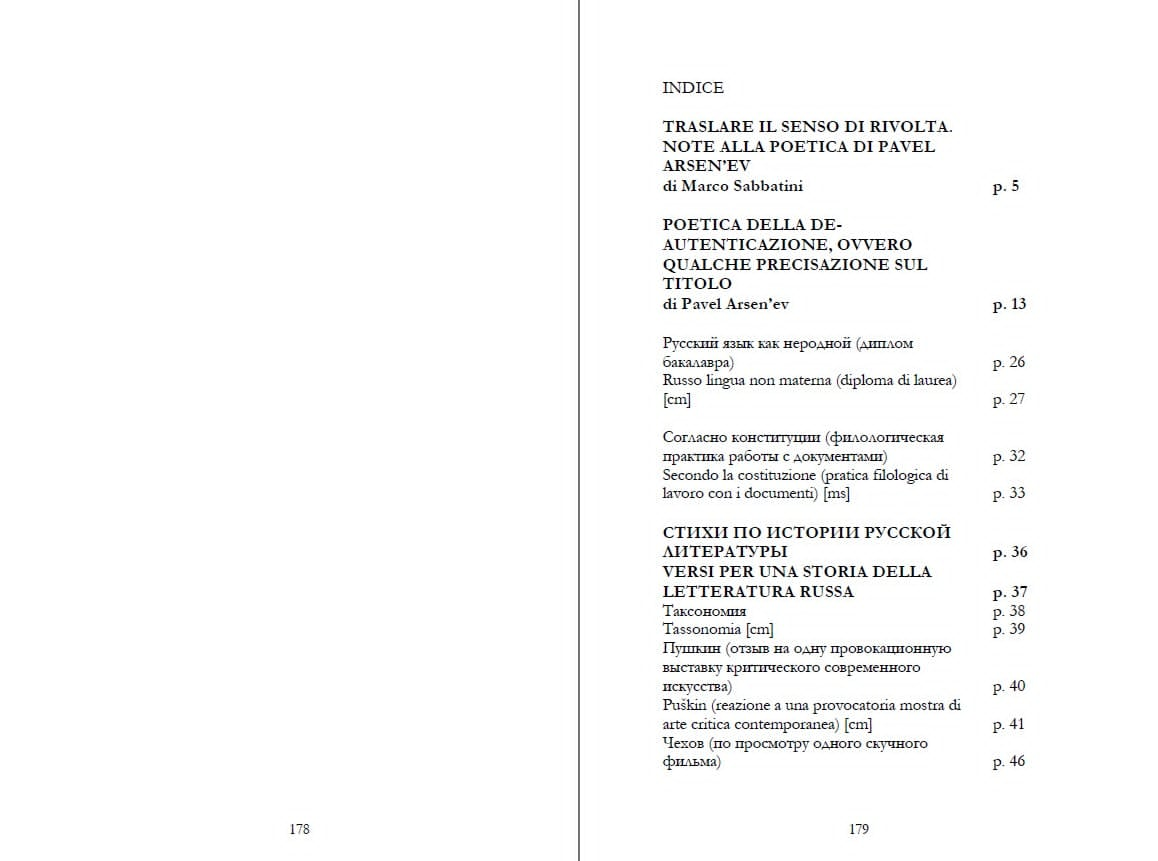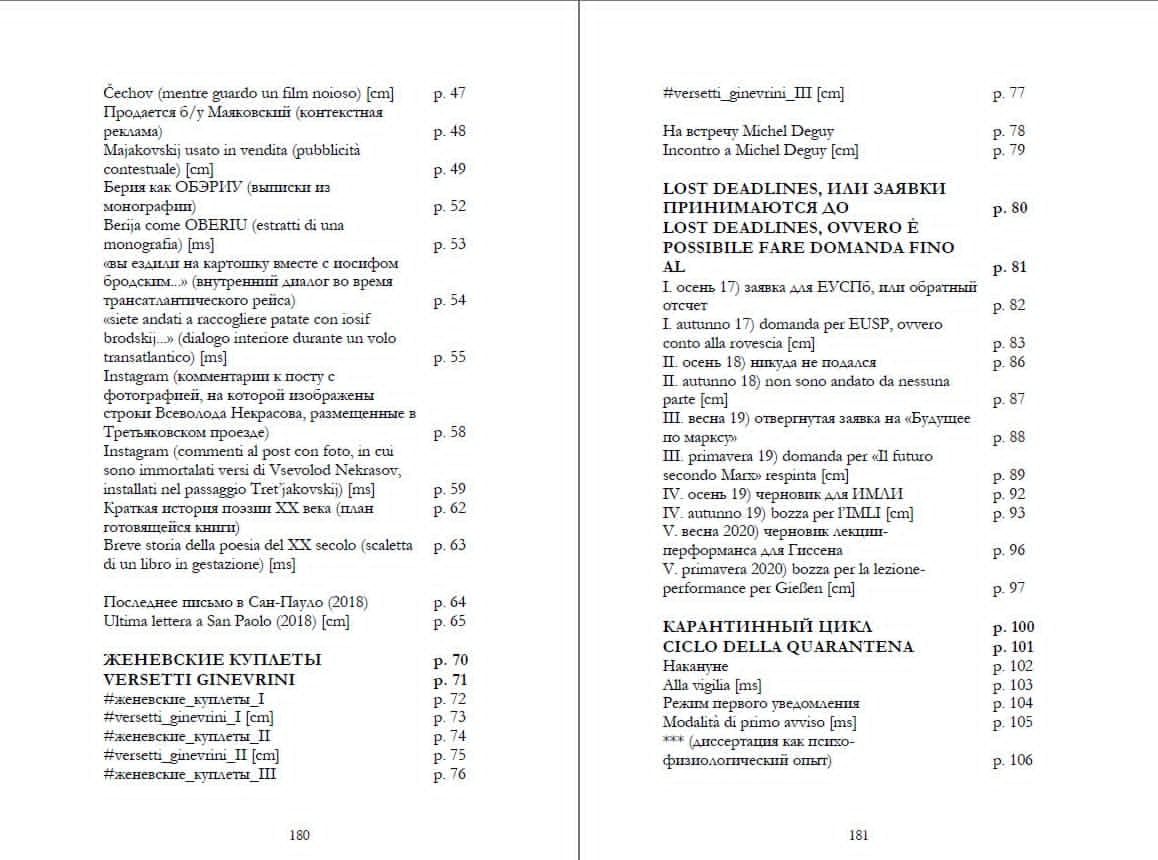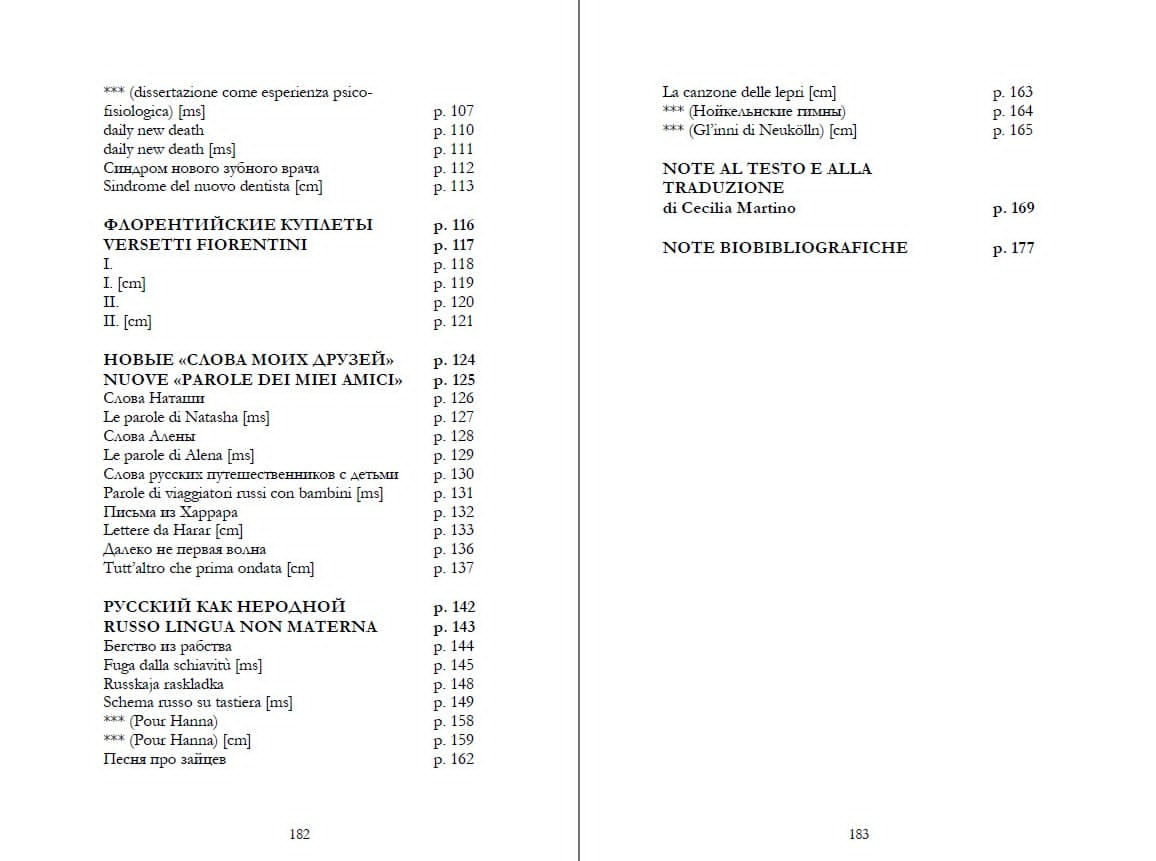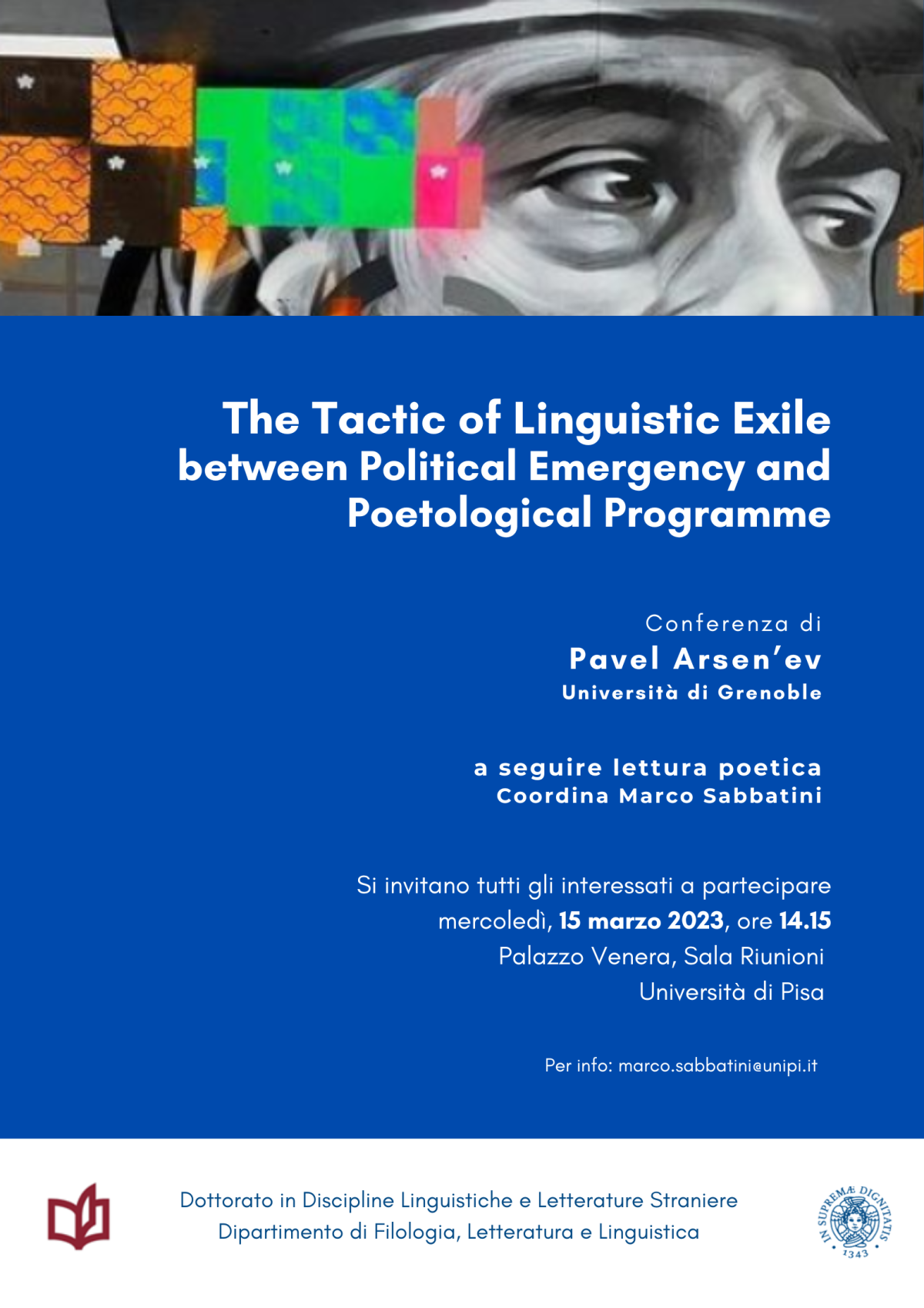-
«Russo lingua non materna» (Macerata: Seri Editore, 2024)
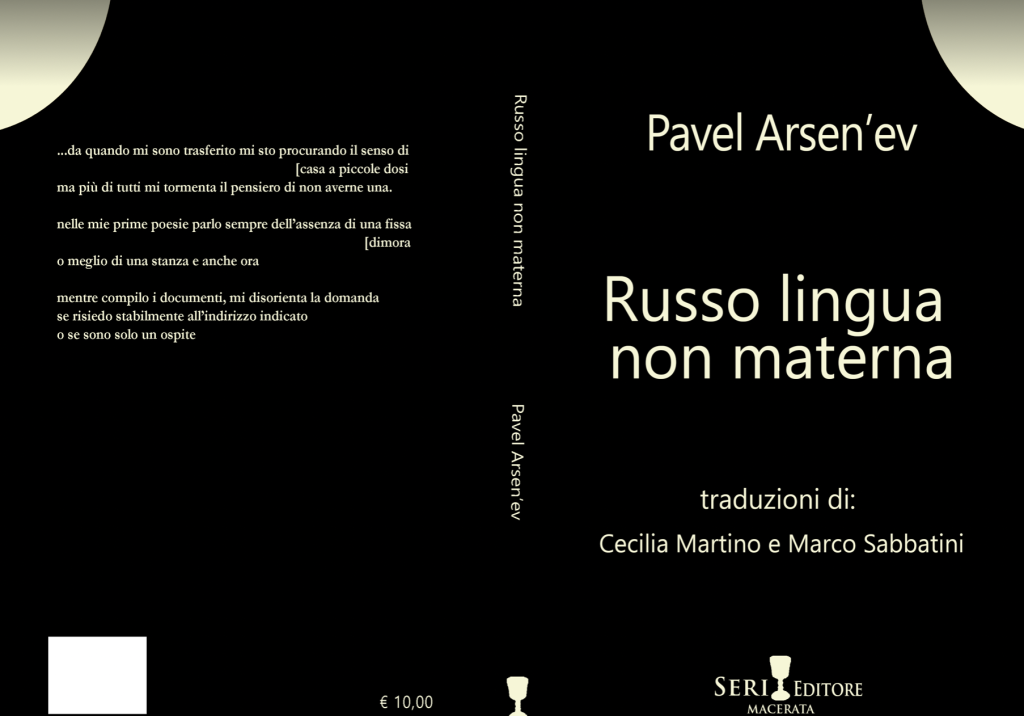 В декабре в издательстве Seri Editore (Macerata) выходит русско-итальянская билингва «Russo lingua non materna«. «La scrittura poetica di Pavel Arsen’ev è una delle espressioni più originali nel contesto della letteratura russa dell’ultimo ventennio; al vasto corpus dei componimenti in versi si affianca un solido repertorio di opere di saggistica, di teoria letteraria e di esperimenti artistici realizzati con installazioni, supporti video e con l’ausilio dei social media. Il carattere poliedrico di Arsen’ev emerge anche nella creazione di uno spazio letterario alternativo, nei versi di Arsen’ev emerge il tentativo di costruzione di una poetica ‘pragmatica’, in cui si realizza lo spostamento dell’accento verso l’atto comunicativo di una narrazione fattuale (faktologija). Nella sua scrittura è costante la pratica del ready-made di duchampiana memoria e il ready-written, laddove manufatti del quotidiano ed enunciati della più prosastica realtà sono prelevati dalla loro funzione consueta e isolati diventano materiale citazionale, assurgono ad atto poetico» (dalla prefazione di Marco Sabbatini).
В декабре в издательстве Seri Editore (Macerata) выходит русско-итальянская билингва «Russo lingua non materna«. «La scrittura poetica di Pavel Arsen’ev è una delle espressioni più originali nel contesto della letteratura russa dell’ultimo ventennio; al vasto corpus dei componimenti in versi si affianca un solido repertorio di opere di saggistica, di teoria letteraria e di esperimenti artistici realizzati con installazioni, supporti video e con l’ausilio dei social media. Il carattere poliedrico di Arsen’ev emerge anche nella creazione di uno spazio letterario alternativo, nei versi di Arsen’ev emerge il tentativo di costruzione di una poetica ‘pragmatica’, in cui si realizza lo spostamento dell’accento verso l’atto comunicativo di una narrazione fattuale (faktologija). Nella sua scrittura è costante la pratica del ready-made di duchampiana memoria e il ready-written, laddove manufatti del quotidiano ed enunciati della più prosastica realtà sono prelevati dalla loro funzione consueta e isolati diventano materiale citazionale, assurgono ad atto poetico» (dalla prefazione di Marco Sabbatini).
Textographic works, featuring texts from the book
Presentazioni:
- 3.03, Pisa: Pellegrini bookshop Book presentation with participation of Marco Sabbatini & Alessandro Seri
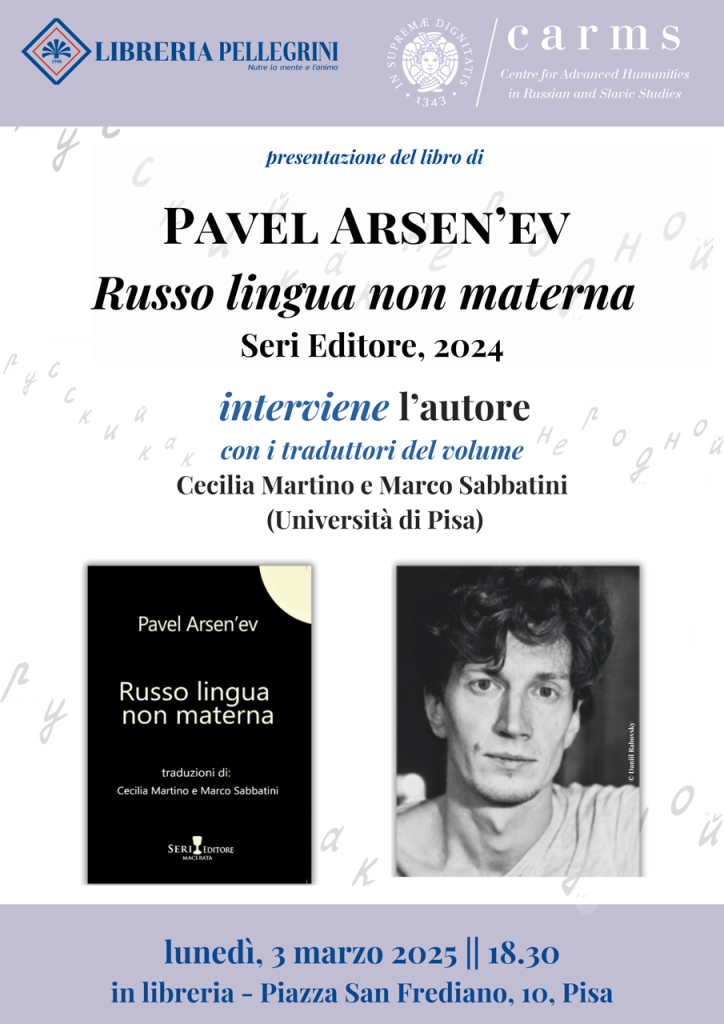
- 4.03, University of Pisa, 12.00 Печать в изгнании вместо «печати изгнания» (О медиальной и идеологической ассимметрии русофонной эмиграции)
- 5.03, University of Macerata, 15.00, Poesia e performance nella letteratura russofona contemporanea + Aperitivo poetico, 18.30
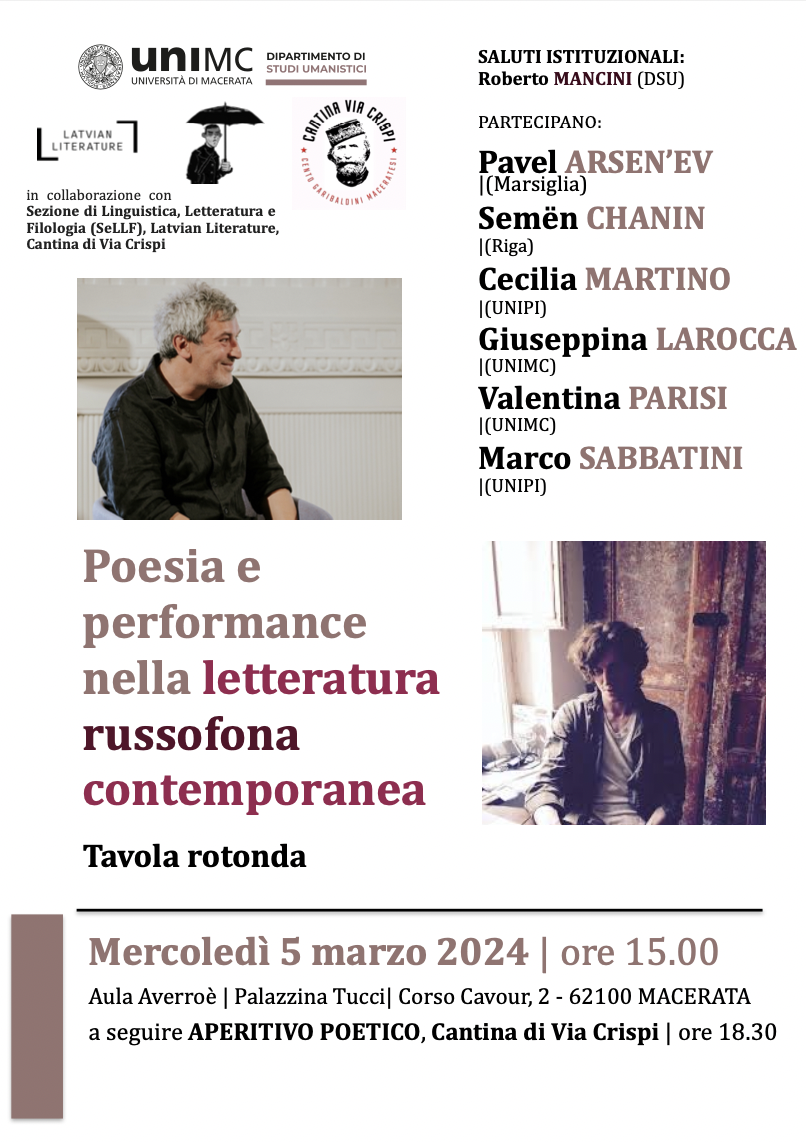
-
- 6.03, Macerata: Feltrinelli Liberia. Book presentation with participation of Marco Sabbatini & Cecilia Martino
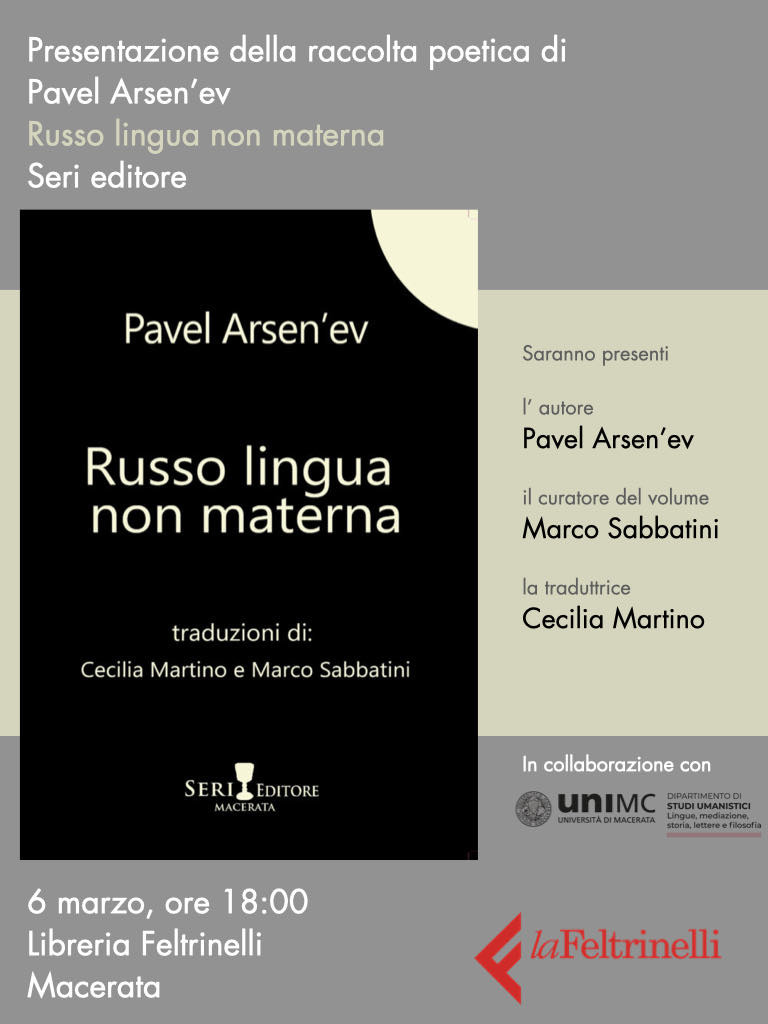
- 6.03, Macerata: Feltrinelli Liberia. Book presentation with participation of Marco Sabbatini & Cecilia Martino
- 7.03, Rome: Tomo Libreria (Via degli Etruschi, 4) Book presentation with participation of Alexandra Petrova
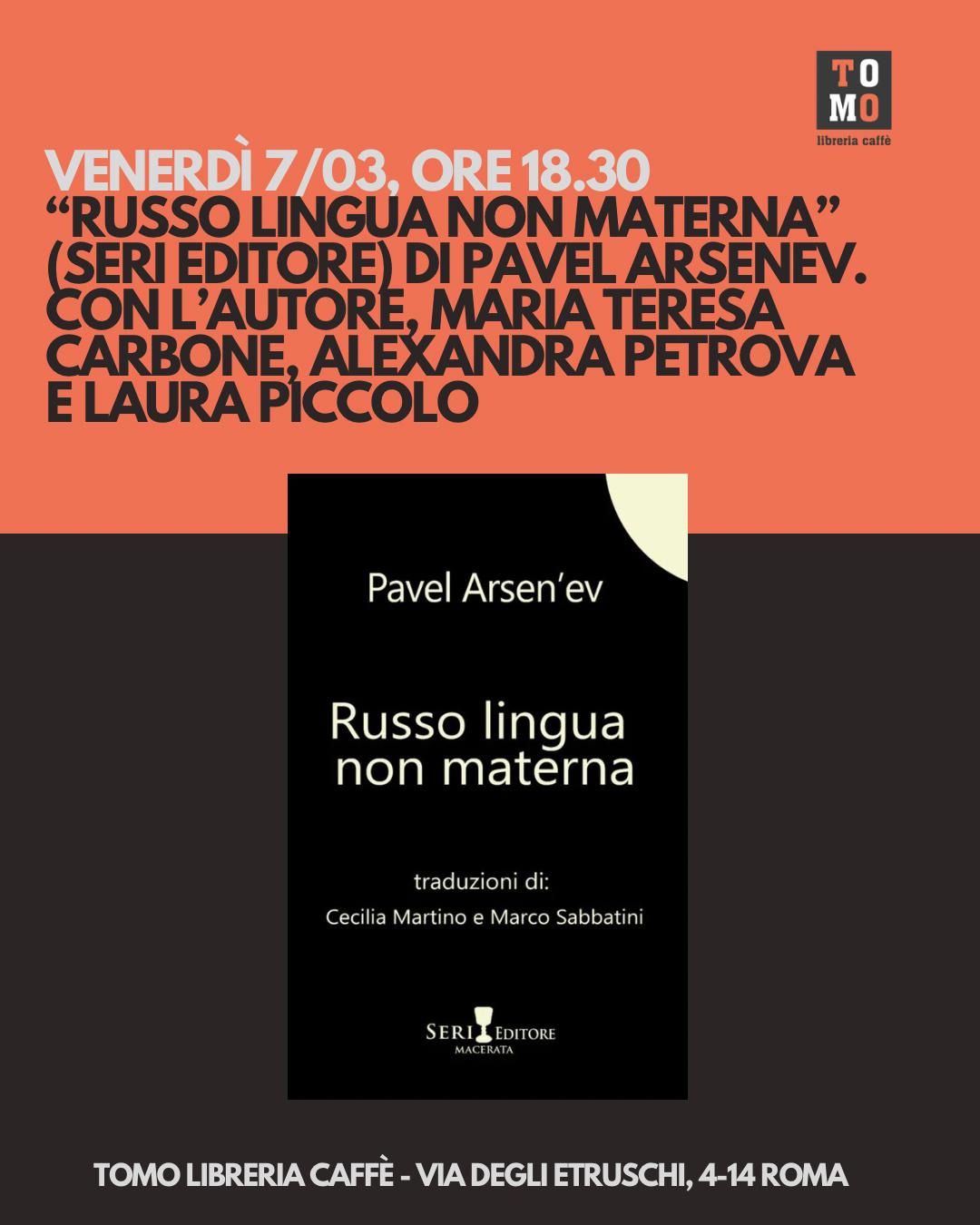
Eventi passati:
- 5 dicembre, University of Pisa
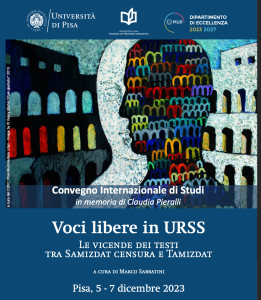 Convegno internazionale di studi «Le vicende dei testi: Tra Samizdat, censura e tamizdat» (Dipartimento di Filologia, Letteratura e Linguistica, Aula Magna di Palazzo Boilleau, Via Santa Maria, 85)
Convegno internazionale di studi «Le vicende dei testi: Tra Samizdat, censura e tamizdat» (Dipartimento di Filologia, Letteratura e Linguistica, Aula Magna di Palazzo Boilleau, Via Santa Maria, 85)
Recensioni: VALENTINA PARISI L’esilio linguistico di Pavel Arsen’ev, poeta di un surreale «ready-written» // il manifesto, 17 novembre 2024 anno XIV — N° 45 (Inserto settimanale «Alias Domenico») 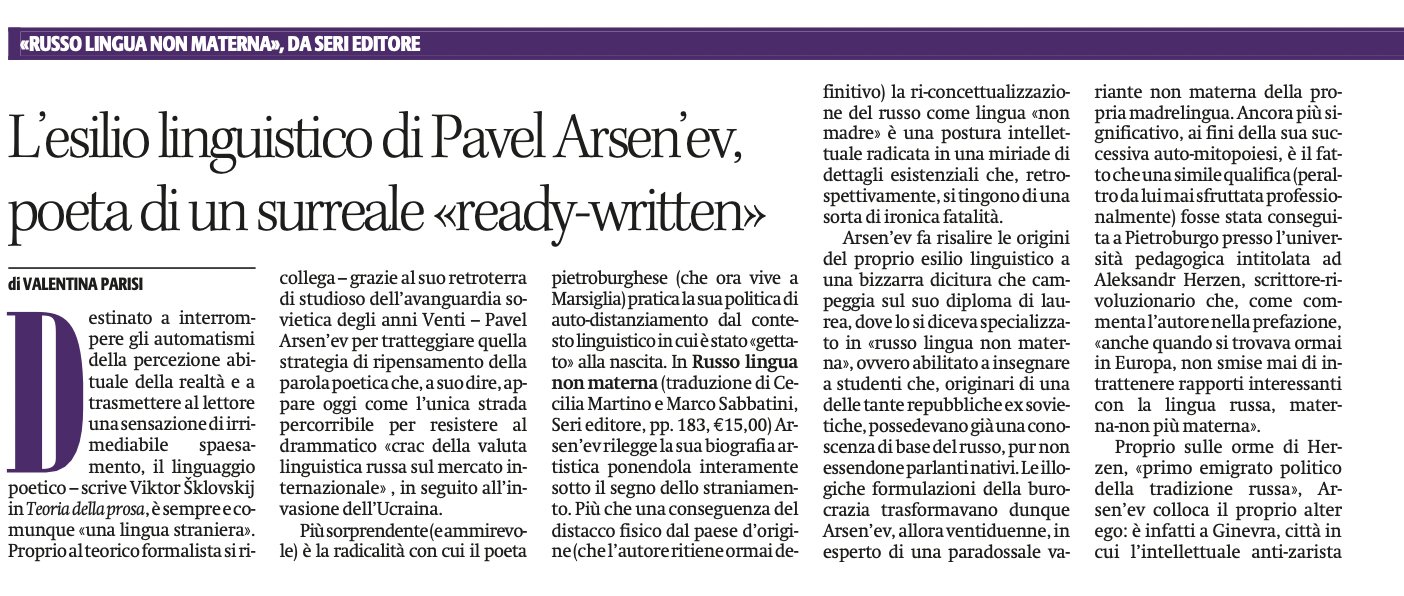
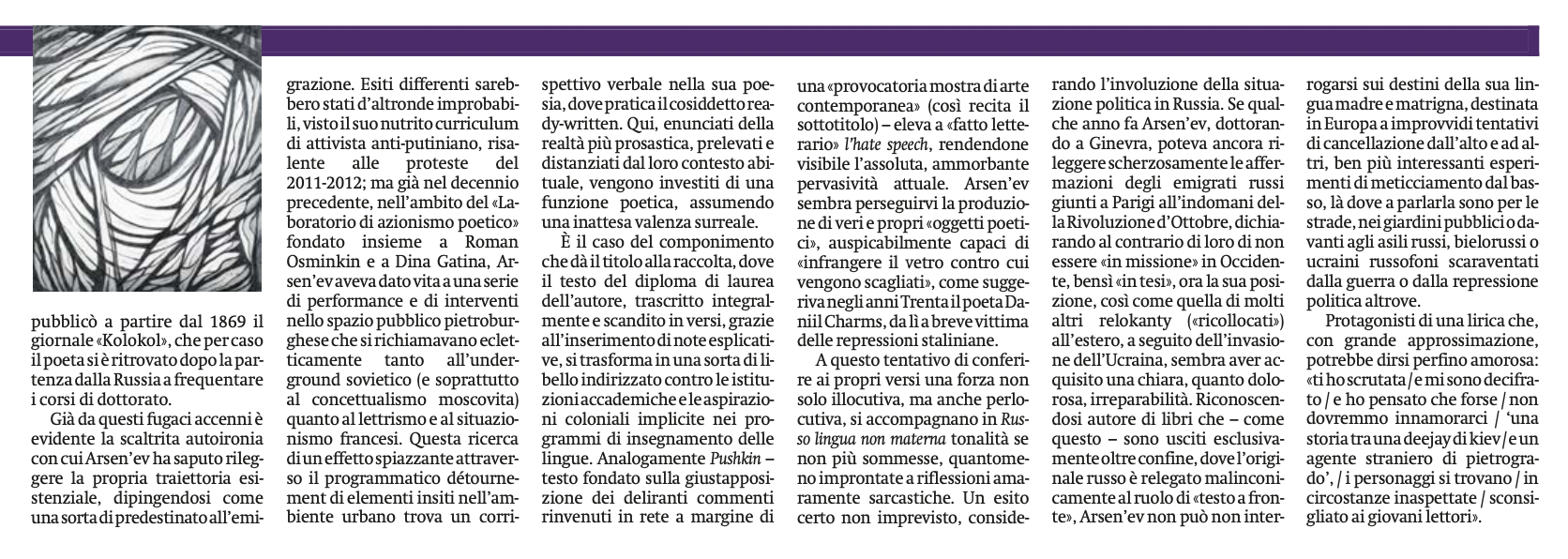 pdf
pdf
- Contents
-
